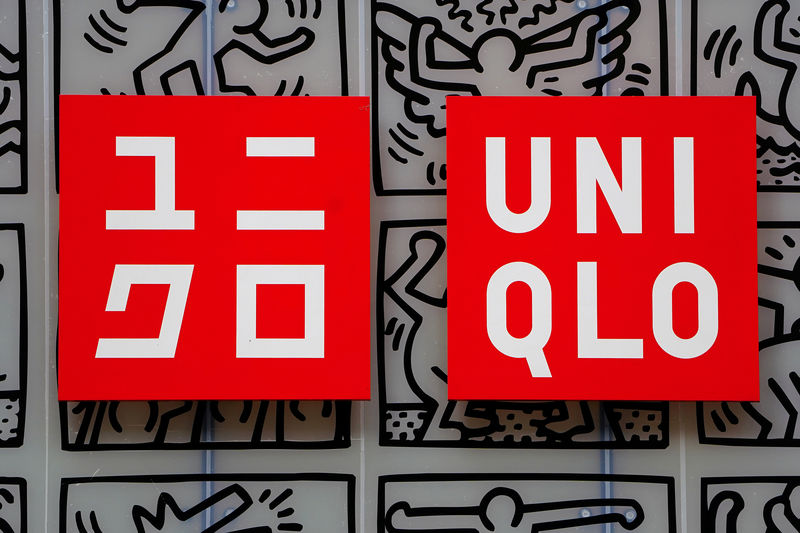By Sangmi Cha
SEOUL (Reuters) - A bitter dispute between South Korea and former colonial power Japan has flared up, with Japanese clothing brand Uniqlo facing a consumer backlash after a new ad by the company was criticised as mocking victims of wartime forced labour and brothel workers.
A YouTube video created by a South Korean student parodying the ad has gone viral and protesters have targeted Uniqlo stores, demanding an apology from the company.
Relations between the two countries have slumped to their lowest in decades after a ruling by South Korea's top court last year ordering Japanese firms to compensate wartime forced labourers.
In July, Japan tightened controls on exports of three key high-tech materials to South Korea, prompting a wide-ranging boycott of Japanese products ranging from beer to pens.
Gaining more than 101,000 views in two days, the 19-second parody video posted on Saturday depicts a likeness of the Uniqlo's TV commercial that the company began airing this month in South Korea and other markets.
In the commercial, Iris Apfel, 97-year-old American style icon with more than 1.4 million Instagram followers, is in an animated conversation with 12-year-old fashion designer Kheris Rogers.
When Rogers asks how she used to dress as a teenager, Apfel says: "I can't remember that far back!"
Instead of a literal translation of that line, the commercial which aired in South Korea carried subtitles saying: "Gosh! How can I remember something that goes back 80 years?"
In the parody video, a South Korean history major college student Youn Dong-hyeun stands with Yang Geum-deok, a 90-year-old woman who had been a forced labourer for Japan's Mitsubishi during World War Two.
Youn asks how hard it was for Yang when she was young. "It is impossible to ever forget that awfully painful memory," she replies. Youn has now posted the video with subtitles in English and Japanese.
South Korea and Japan share a bitter history dating to the Japanese colonisation of the Korean peninsula from 1910 to 1945, including the use of comfort women, a euphemism for girls and women, many of them Korean, forced to work in its wartime brothels.
Uniqlo, owned by Japan's Fast Retailing Co Ltd’s (T:9983), pulled the ad in South Korea on Saturday.
"There was no intention to touch on the issue of comfort women or South Korea-Japan dispute," a Uniqlo official in Seoul told Reuters, asking not to be named because of the sensitivity of the situation.
The translation, which was done in South Korea, was meant to help convey the message of the original commercial, the official said. She declined to identify who had done the translation.
The company has already seen its South Korean sales hit and a sharp drop in customers at its stores as part of the wide-ranging boycott.
As the outcry against the commercial grew, student protesters took to the street demanding an official apology from Uniqlo.
Bang Seulkichan, 22, was among those picketing a Uniqlo store in Seoul, holding a sign reading: “Colonial rule 80 years ago – we remember!”
South Korea's Supreme Court last year ruled in separate decisions that Japan’s Nippon Steel & Sumitomo Metal Corp. (T:5401) and Mitsubishi Heavy Industries (T:7011) must compensate South Korean victims of forced labour.

Park Young-sun, South Korea's minister of small and medium enterprises, told a parliament committee on Monday the ad controversy was "very upsetting".